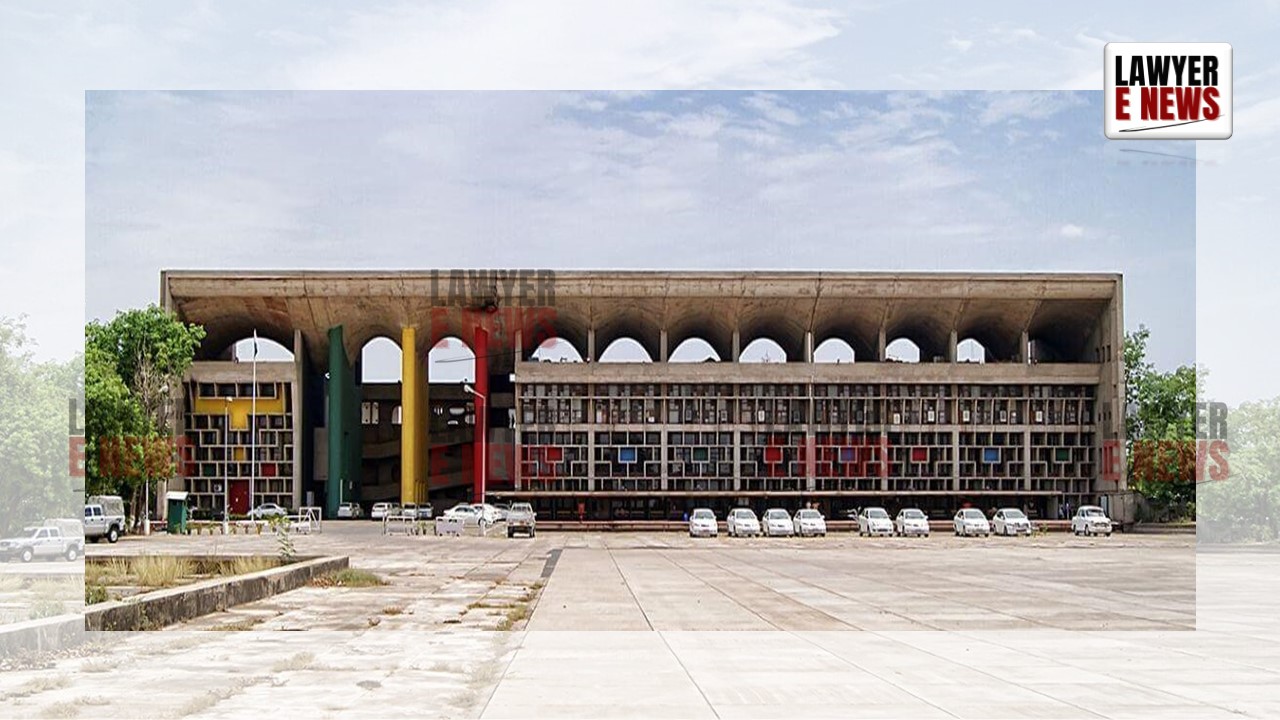-
by Admin
15 February 2026 5:35 AM



In a recent judgement, Punjab and Haryana High Court ruled on concerning land acquisition and public infrastructure development in Chandigarh. The bench, comprising Chief Justice Sheel Nagu and Justice Anil Kshetarpal, directed the removal of a religious structure obstructing the construction of a rotary (roundabout) and dismissed an older petition challenging the acquisition of land for public purposes.
The first petition, CWP-14168-1999, was filed by Baba Charanjit Kaur in 1999, challenging the notifications issued under the Land Acquisition Act, 1894 for acquiring land that included the religious site Gurudwara Sanjha Sahib. The petitioner sought to quash the acquisition and release the Gurudwara from the process, arguing that the land was being used for religious purposes and that other institutions had received similar releases.
In contrast, CWP-23369-2017 was filed by Peacock Environment and Wildlife Protection Society, seeking the completion of a rotary connecting sectors in Chandigarh and Mohali. The petitioner contended that the ongoing construction was delayed due to the religious structure, causing public inconvenience and road safety issues.
Acquisition Process and Timeliness: The court noted that the land acquisition process under the 1894 Act was completed with the award announced on March 27, 1991. Despite this, the petition challenging the acquisition was not filed until 1999, rendering it significantly delayed. The court emphasized that the land had already vested with the Union Territory by that time, and the petitioner had not raised objections within the statutory period under Section 5-A of the Act.
Service of Notices: The petitioner claimed that personal notices under Sections 4, 6, and 9 of the 1894 Act were not served. However, the court held that there was no requirement for personal service of these notices, as publication in the Official Gazette and newspapers sufficed. The court found no merit in this argument and pointed out that the Gurudwara was built after the acquisition process had begun.
Public Interest and Development: In the connected petition regarding the rotary, the court ruled that public infrastructure projects must not be unduly delayed by individual claims, especially when there is no legal basis for such claims. The court stressed that "public interest must prevail" and directed the authorities to proceed with the removal of the structure to complete the construction.
In its final order, the court dismissed CWP-14168-1999 and allowed the construction of the rotary to proceed in CWP-23369-2017. The court rejected the claim for compensation regarding the acquisition of the Gurudwara land, as no such prayer had been included in the petition. However, the court noted that the petitioner could seek compensation through the established procedures under the Land Acquisition Act.
The court's decision reinforces the principle that public projects, especially those aimed at improving infrastructure and safety, cannot be held hostage to delayed claims. The ruling clarifies the procedure for challenging land acquisitions and highlights the importance of timely objections in such cases.
Date of Decision: October 16, 2024
Peacock Environment and Wildlife Protection Society v. State of U.T. Chandigarh and Others
Baba Charanjit Kaur v. Union Territory Chandigarh
